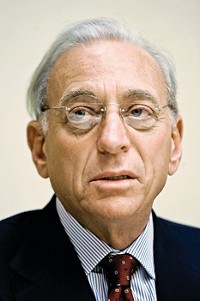Advertisement
Grab your lab coat. Let's get started
Welcome!
Welcome!
Create an account below to get 6 C&EN articles per month, receive newsletters and more - all free.
It seems this is your first time logging in online. Please enter the following information to continue.
As an ACS member you automatically get access to this site. All we need is few more details to create your reading experience.
Not you? Sign in with a different account.
Not you? Sign in with a different account.
ERROR 1
ERROR 1
ERROR 2
ERROR 2
ERROR 2
ERROR 2
ERROR 2
Password and Confirm password must match.
If you have an ACS member number, please enter it here so we can link this account to your membership. (optional)
ERROR 2
ACS values your privacy. By submitting your information, you are gaining access to C&EN and subscribing to our weekly newsletter. We use the information you provide to make your reading experience better, and we will never sell your data to third party members.
Business
Advisory Services Back DuPont Foe
Strategy: Two of three advisers say Trian Fund Management should get seats on DuPont’s board
by Marc S. Reisch
April 29, 2015
| A version of this story appeared in
Volume 93, Issue 18
Activist investor group Trian Fund Management has won the partial backing of two voting advisory services in its contest to win seats on DuPont’s board of directors at the company’s May 13 annual meeting. However, a third service rejected all four Trian candidates.
DuPont is downplaying the value of the support for Trian’s directors and says shareholders will make up their own minds when they vote.
The most influential of the three advisory services, Institutional Shareholder Services (ISS), recommends that shareholders elect two of Trian’s four board nominees, including Trian CEO Nelson Peltz. Advisory service Glass, Lewis & Co. recommends a vote for Peltz but none of the other Trian nominees, while the third service, Proxy Mosaic, rejects all four Trian nominees.
In its assessment of DuPont, ISS notes that “this is not a broken company,” as Peltz has suggested, but contends “there is compelling evidence that the dissidents are onto something in their critique.” Trian aggressively promotes change at companies in which it takes a stake. Its targets have included PepsiCo, industrial conglomerate Ingersoll Rand, and food maker Danone.
In a letter to DuPont shareholders, Trian hails ISS’s voting recommendations, saying it is pleased that the advisory service agrees that “change is needed on the DuPont board.” But Trian added that all four of its nominees “are needed in the DuPont boardroom.”
Peltz and Trian have argued that DuPont’s overhead costs are too high and that the firm ought to be broken up. ISS gives some credence to that take: “Operating efficiency is not what it should be, yet instead of addressing the core issues, the [DuPont] board and management, at least in their communications with shareholders, are more inclined to obfuscation than accountability.”
DuPont disagrees. “We strongly believe ISS reached the wrong conclusion,” the company says. The company also says Glass, Lewis erred “in failing to recommend a vote for all 12 DuPont nominees.”
In attempting to unseat four DuPont directors, Trian “would deprive DuPont’s board of critical skills that are central to DuPont’s purpose and value proposition,” the company claims.
DuPont also points out that institutional shareholders, who control about 70% of its stock, don’t always accept advisory service recommendations. “We are confident that shareholders will do their own analysis,” the firm says.




Join the conversation
Contact the reporter
Submit a Letter to the Editor for publication
Engage with us on Twitter